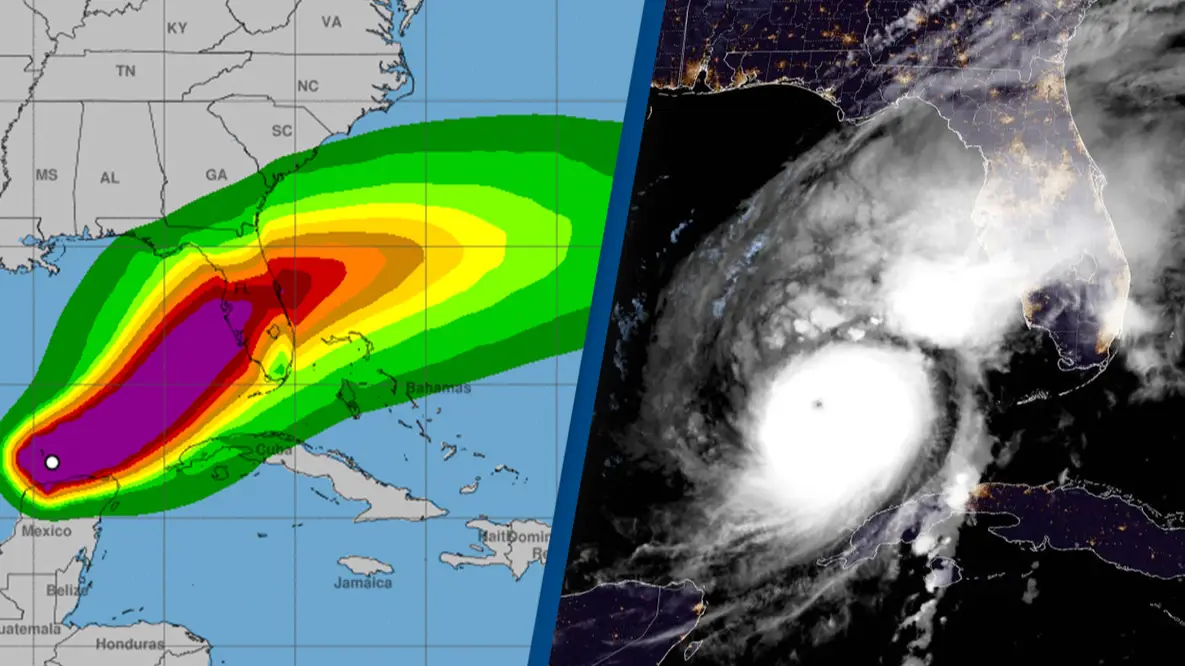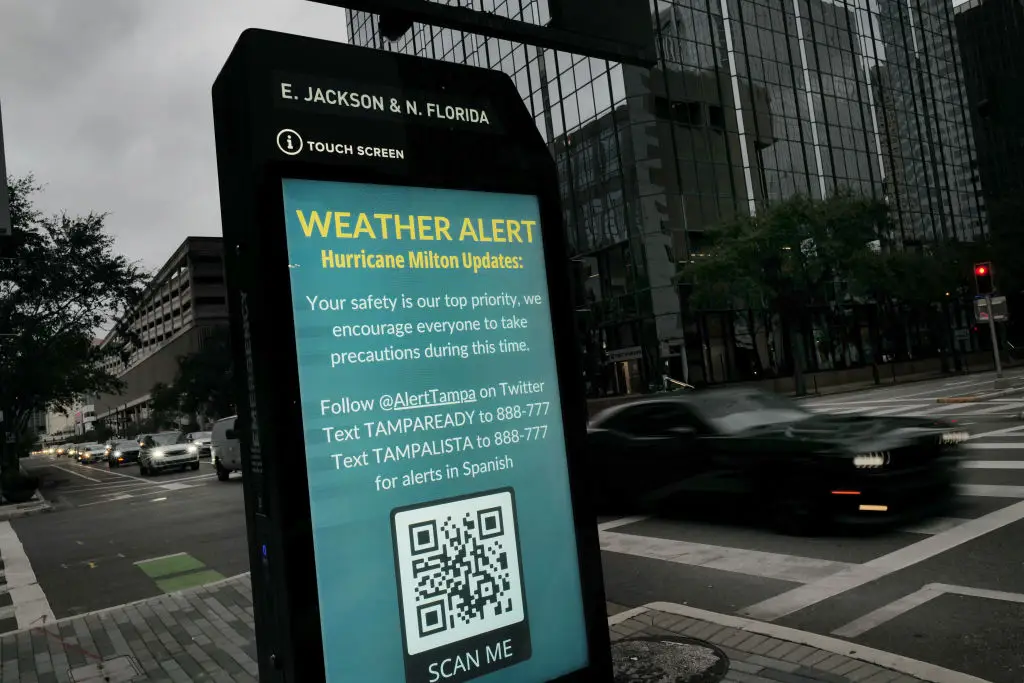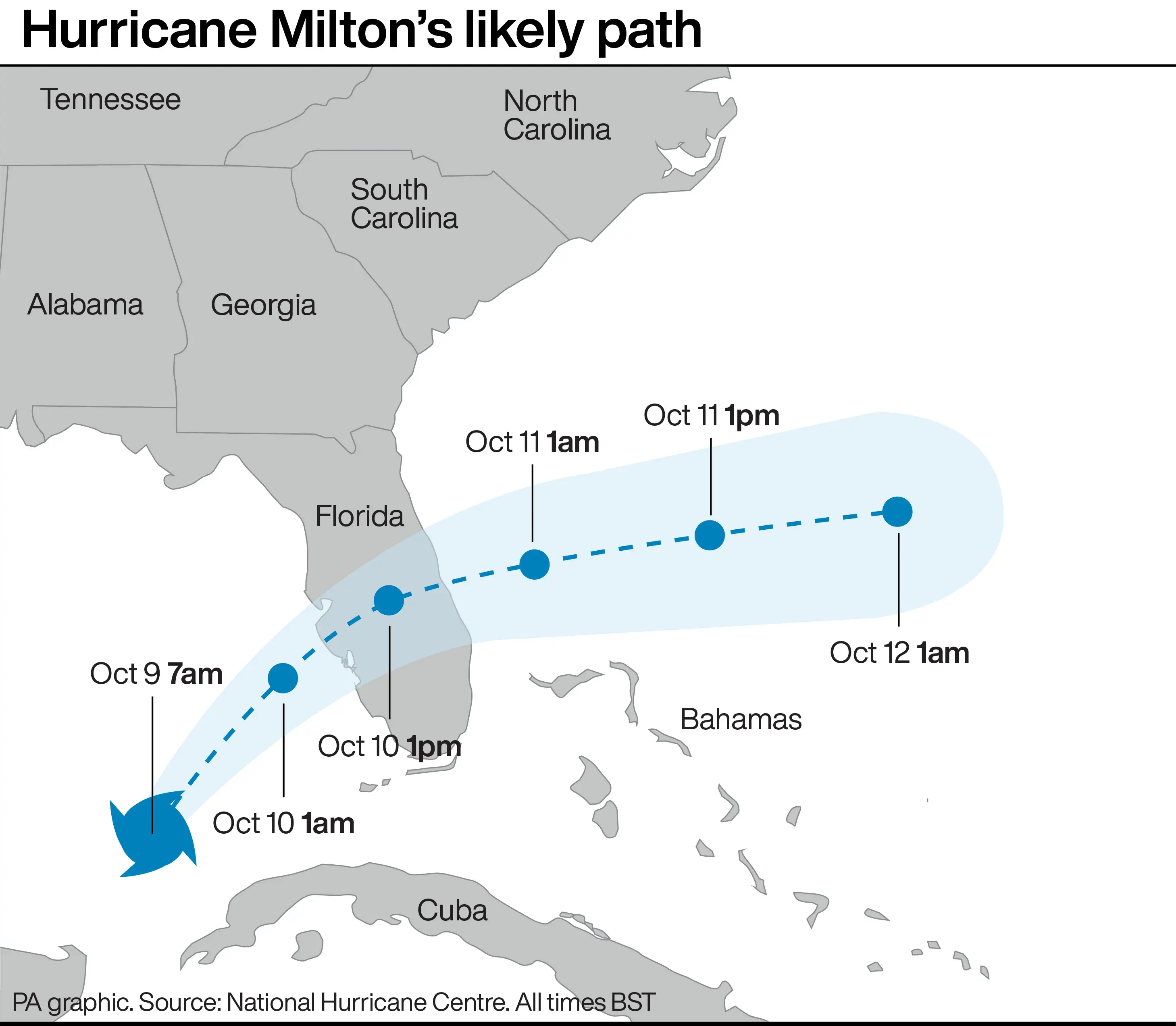
Hurricane Milton is set to devastate parts of Florida just weeks after Hurricane Helene tore through six US states.
Officials have urged millions to evacuate or seek shelter as the Category 5 storm barrels towards the state's Gulf Coast.
It's feared Milton could be one of the most powerful storms to form in the North Atlantic in recent years.
Winds of '157 mph or higher (252 km/h or higher)' are forecast, which is set to rip apart homes, topple trees and cause power outages for 'weeks to possibly months,' according to the US National Hurricane Center (NHC).
Advert
It added that the storm poses an 'extremely life-threatening situation' for the western coast of Florida, with one of the center's specialists John Cangialosi warning: "Milton has the potential to be one of the most destructive hurricanes on record for west-central Florida."
The NHC predicted Milton will make landfall 'late tonight (Wednesday October 9) or early Thursday morning.'
Milton is predicted to weaken due to 'vertical wind sheer' as it heads towards Florida. However the NHC said there is 'high confidence that Milton will remain a very dangerous hurricane' when it hits.

The UNC's 5am weather update said Milton would have sustained wind speeds nearly 130 mph at landfall.
It said of Milton's path: "After the hurricane reaches the coast, a turn to the east-northeast is expected as another trough approaches the system from the west.
"Milton should exit Florida and move over the Atlantic waters Thursday afternoon and accelerate eastward after that.
"The cyclone is expected to become extratropical over the Atlantic on Friday and gradually weaken."

CNN has tracked Milton's path and expects it to hit from Clearwater to Port Charlotte from 7am ET on Thursday morning.
The storm will widen as it makes its way across the state. It will then travel for 12 hours, impacting Orlando, Palm Bay and Port Saint Lucie for 7pm on Thursday evening, the map predicts.
On Wednesday morning, Colin Burns, Deputy Incident Commander in Pasco County, continued to urge residents in vulnerable parts of Florida to evacuate.
He told CNN: “Do not hesitate. If you can get out, get out.”
It comes as relief workers in the area helped to pick up the pieces September's Hurricane Helene left behind. The storm had hit the state's Gulf coast with winds above 140mph (225km/h).
Topics: Climate Change, Florida, Hurricane Milton